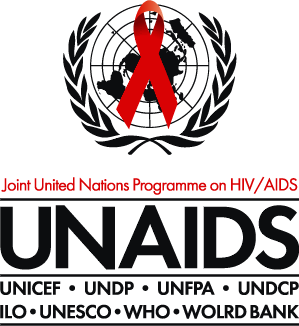OTGV #43 - AIDS Stigma
Broadcast Date: 01/12/2003
Intro:
But the biggest challenge of HIV/AIDS isn't fighting the disease itself but the discrimination and stigma that come along with it.
=============================
Some 20 years after the world was first alerted to Aids, the pandemic has become what UN chief Kofi Annan says is one of the world's biggest security threats
Worldwide, some 40 million people have been infected with HIV/Aids
In
It was a seven percent increase over the same period last year.
Despite the threat posed by Aids, the world it seems lacks political will to fight it
Hi Welcome to On the Grapevine with me Chong Ching Liang.
How big is the stigma surrounding HIV/AIDS patients and their family?
Well, for a start even getting a place in a school for your HIV/AIDS child is a daunting task.
Noraini adopted Ariq, her son, before she even knew he has AIDS.
Now, Ariq is three years old, and Noraini and her husband will need to look for a school for him.
They know it isn't going to be easy.
"Right now we have not register him for any schools because a few weeks ago, SPH did some surveys and from the surveys we understand that no schools will want to accept him because of his condition. They are afraid that other parents will not agree with him being in school. I dare not try. Right now we've seen what Ariq has gone thru, so... honestly, I am afraid of rejection."
The last two years have seen a series of high-profile AIDS prevention campaigns across all media here.
The infamous tombstone as headboard of a bed was seen on TV, in newspapers, and near bus-stops and train stations.
But such campaigns are sometimes a double-edged sword.
AIDS sufferers may be further stigmatised by the reinforcement of public perception that HIV/AIDs is an immoral disease.
Minister of State for Health Balaji Sadasivan calls this type of labelling as problematic.
Dr Balaji says Ariq is a prime example of why such stigma mustn't be entertained.
"It's wrong to call it an immoral disease particularly in referring to the disease and then refering to the child. That child was totally innocent. The linkage of the two actually helps create bias and this is what we must all ensure that we do not do. Now KK Hospital and social groups will work as hard as possible to integrate children with AIDS in society try our best to ensure that no discrimination is against them because they are innocent. We will work with schools, we will work with parents, we will work with society to ensure they are integrated."
In
Its Vice-President, Brenton Wong, on what sets HIV/AIDS sufferers apart.
"Why HIV/AIDS is so different from other diseases or treated differently is because of the perception and ignorance involved and the heavy stigma and discrimination. And that stigma and discrimination heavily impacts on prevention efforts as well as care for the patient because even now we have patients who do not want to go to the CDC for treatment because they do not want to even be seen there."
In fact, until recently, all hospices had refused to admit HIV/AIDS patients, saying their staff would resign out of fear.
Is this disease then the modern equivalent of leprosy, where sufferers are shunned and ostracised by society?
Dr Balaji says not on his watch.
"As Brenton pointed out, we are very serious about preventing discrimination against AIDS. And we issued a directive to the hospices that they are not allowed to discriminate against AIDS patients. And that directive is for all health establishments. We will have to work with schools and work with the Ministry of Education."The Singaporean society has always considered itself to be conservative.
But conservatism can be used as an excuse not to change.
Singaporean parents delegate the sexual education of their children to the schools and other external agents.
There's almost a delusional belief that if you don't talk about sex, then their children won't be tempted carnally.
Noraini says it is difficult to talk about sex education, and sexually transmitted infections, let alone HIV/AIDS.
"Most of the time when we talk about HIV/AIDS, people tend to shun from the topic. It's a taboo to discuss AIDS at all. So when the story of Ariq came out in media, many people, you know, were afraid to come forward and talk to us."Wrongly held taboos kill life.
Actor Gillian Anderson or Agent Scully in X-Files with her take during the BBC radio show, Talking Point.
"Sure it's tough but it's a fact of our life in the world that we are living in today. And I think it's absolutely necessary for us to put all our squeamishness and the taboo behind us in - effectively to save lives. And that should come first and foremost."
Even if there exists a cure tomorrow, Singaporeans and indeed the world must still change their views for HIV/AIDS to be combatted effectively.
Noraini with this plea for compassion.
"I hope Singaporean family members will give support to their family members who are infected with the disease because they need the emotional as well as the moral support. The disease itself is a punishment whatever you may call it. So as families we have to give a strong moral and emotional support to people who have AIDS."
This is Chong Ching Liang for Newsradio 938.
===============================
Related Links:
Newsradio 938 (now 938Live)

http://www.938live.sg/
UNAIDS

http://www.unaids.org/en/default.asp
Ministry of Health

http://www.moh.gov.sg/corp/about/newsroom/pressreleases/details.do?id=8519689
Action for AIDS

www.afa.org.sg


0 Comments:
Post a Comment
<< Home